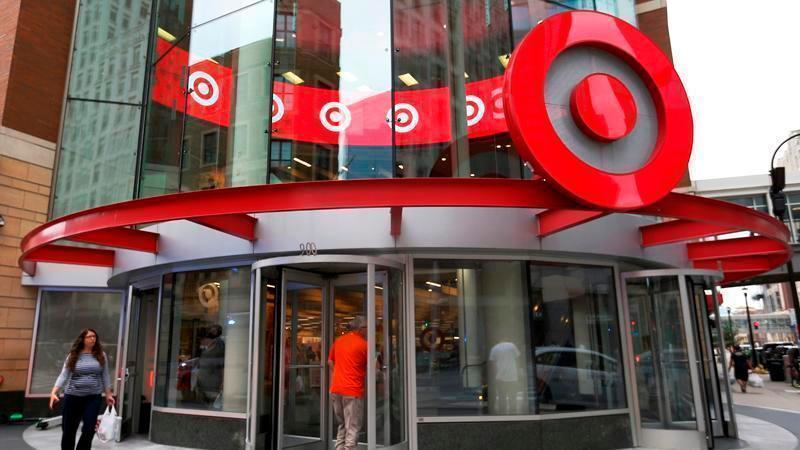Target’s profit surges as Americans cast restrictions aside

In this July 10, 2019, file photo shoppers visit the downtown Target Store in Minneapolis. Target Corp. reports financial results Wednesday, Aug. 21.[AP/ Jim Mone, File]
Target’s sales and profits surged in the first quarter as Americans emerged from the pandemic eager to spend.
Sales at stores opened at least a year rose 18% in the three-month period that ended May 1. That follows a 6.9% increase in the previous quarter. Online sales soared 50% after rocketing 118% in the prior quarter.
The Minneapolis chain also offered an upbeat sales outlook.
Clothing was the star performer as Americans ditched their sweatpants. Clothing sales spiked more than 60%. Sales of home goods rose in the mid-30% range. Sales of food and beverages grew, even on top of historic growth a year ago.
Target said in March that it will plow $4 billion into its business each year for the next several years to redo its stores, add new ones and speed up delivery. The capital investment is up 50% from the previous year.
It has been expanding its online delivery services and other ways for shoppers to make purchases. Target said items picked up at the store after being purchased online and Shipt, a member-based shipping program, increased by more than 90%. Still, more than 95% of its overall sales were fulfilled by its stores.
Target is investing heavily in its stores and on delivery. It will accelerate the pace of building small-format stores, with plans to add 30 to 40 new stores this year, up from 29 last year. It also will remodel 150 stores this year, and then push that number to 200 remodels a year later.
It is also testing a new distribution hub in Minneapolis and will build five more this year. The hubs will help sort packages and speed up deliveries to customers ordering online.
Target Corp. also said Wednesday that it gained more than a billion dollars in market share from rivals in the latest quarter, on top of a billion dollars in the first quarter of 2020.
First-quarter net income increased more than sixfold to $2.1 billion, or $4.17 per share. Removing one-time costs and benefits, per share earnings were $3.69, easily surpassing Wall Street expectations of $2.21, according to FactSet.
The company last year during the same period earned $284 million, or 56 cents per share, when shoppers were buying more low-margin goods like groceries and fewer goods that are more profitable for Target, such as clothing.
Sales jumped 23.3% to $23.88 billion, also breezing past analyst projections of $21.75 billion.
Helping to drive Target’s business has been strong sales of Target’s inhouse brands such as Pillowfort and Cat & Jack. There was a 36% increase in sales compared with last year, the strongest to date.
CEO Brian Cornell told reporters during a media call on Tuesday that the massive vaccine rollout has led to the return of more normal behavior among shoppers.
“Consumer confidence is on the rise,” Cornell said.
Target has been able to manage inflationary pressures, Cornell said. Target has not faced the same labor shortages being reported widely by many service sector companies, he said.
Target expects comparable sales growth to be up in the mid to high single digits in the current quarter compared with last year.
Shares rose nearly 4%, or $7.59 to $214.02 in premarket trading on Wednesday.